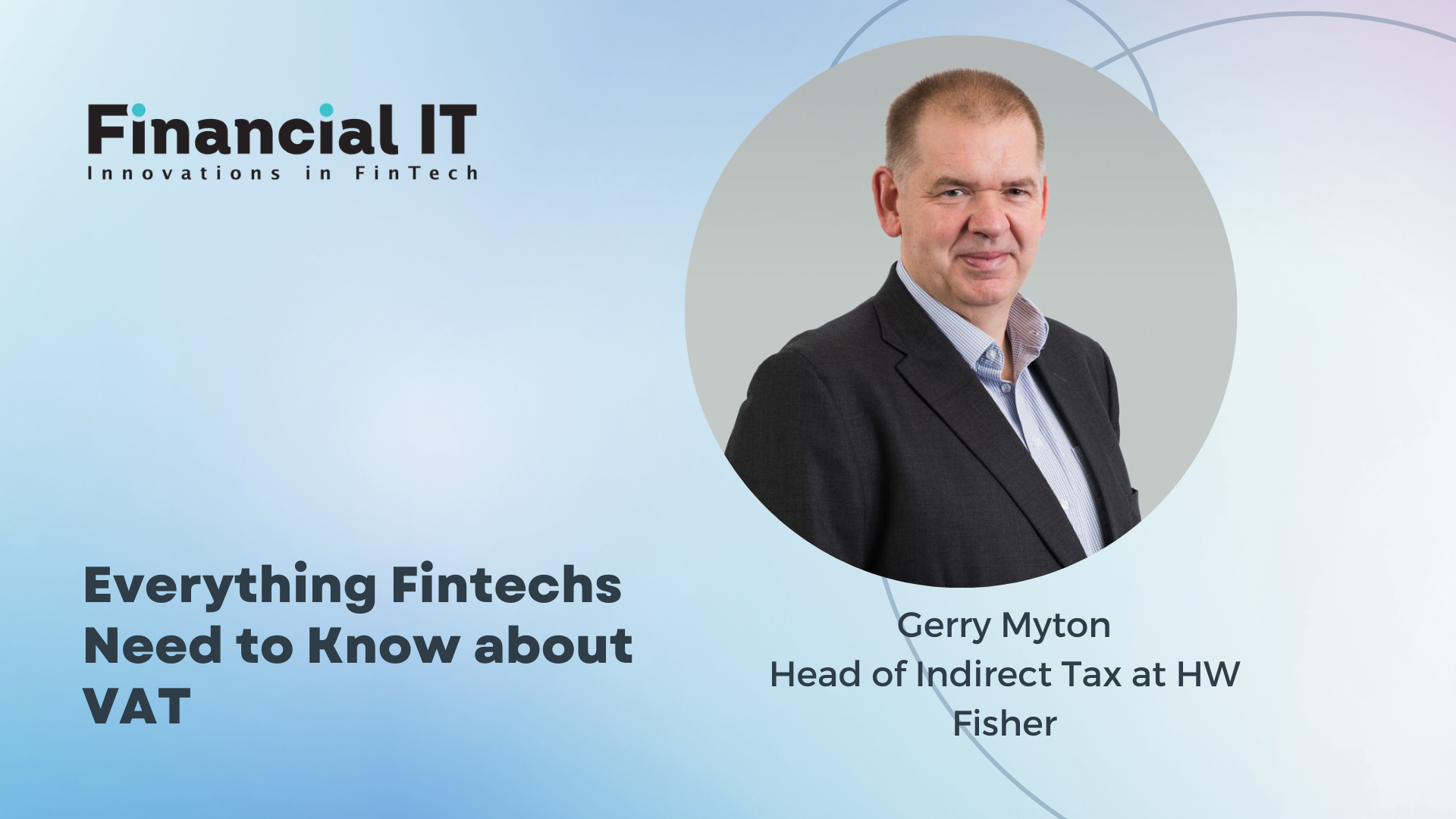Everything Fintechs Need to Know about VAT

- Gerry Myton, Head of Indirect Tax at HW Fisher
- 28.06.2023 01:30 pm #fintech #vat
We have all experienced the impact that financial technology (fintech) has had upon the delivery of financial services. The UK has emerged as one of the leading global fintech hubs, with a thriving ecosystem of around 2,500 fintech companies in Britain, mostly in London, making London the third biggest fintech hub in the world.
However, from a VAT perspective the day-to-day operations for fintech firms will be more complex than a conventional business. This is because many of the financial services being supplied are exempt from VAT with no or limited VAT recovery on costs. Additional VAT issues can arise on buying services from overseas and understanding the rules on supplies made to persons located outside the UK.
Most fintech businesses will incur significant amounts of UK VAT on the purchase of goods and services to facilitate the move from a business concept to start-up phase to a mature business model. UK VAT will be incurred either directly from UK suppliers or by virtue of the requirement to self-assess for VAT under the reverse charge for services or incurring import VAT on goods.
What VAT issues arise?
Partial exemption and recovery of VAT
This is the biggest area of difficulty for the fintech sector. This needs to be looked at from a concept/initial start-up and then again as the business matures.
In the concept/start-up phase, costs will be high and revenue low. VAT law introduces a concept called “intention”. VAT recovery is intention-based and permits a business to recover VAT incurred that has been/will be used to make both taxable and intended future taxable supplies. HMRC are challenging intention-based recovery but with the correct evidence available, a significant VAT cost saving can be achieved.
As the business matures, the business needs to become more mature for VAT purposes too, and consideration should be given to partial exemption. Partial exemption is the apportionment of costs based on a ratio of taxable activity to total activity. This can be done by revenue; referred to as the standard method or the business can propose a special method that is agreed with HMRC. It’s important to note that the financial impact should be assessed as well as the administrative burden of the business in bringing together the information to submit the VAT return.
VAT reverse charge
The biggest mistake made by fintech businesses is failing to self-account for VAT on services received from overseas suppliers. The purpose of the reverse charge is to treat services bought from overseas the same as supplies bought locally plus UK VAT. Mistakes in this area can be costly and result in historical VAT liabilities (usually 4 years for an already VAT-registered business) but for some businesses, including those who are not VAT registered, these liabilities are potentially unlimited.
Place of supply – where your customer is located impacts VAT recovery
The VAT Specified Supplies Order 1999 permits UK VAT-registered businesses to recover VAT on exempt financial services transactions where they are supplied to all customers outside of the UK (post 1 January 2021) and to non-EU-located customers (prior to 31 December 2020.)
If a UK VAT-registered fintech supplies VAT-exempt financial services to customers located outside of the UK, it will be able to recover VAT-incurred costs that relate to those supplies. Where these rules have not been applied correctly, the potential exists for a retrospective VAT claim going back 4 years.
Do your homework
In summary, new business ideas will come up against taxes such as VAT and the best way to address this is to proactively manage that interaction. Do your homework and establish and understanding of your VAT profile. Take advice as mistakes can be costly in terms of both retrospective liabilities and penalties charged by HMRC.




















